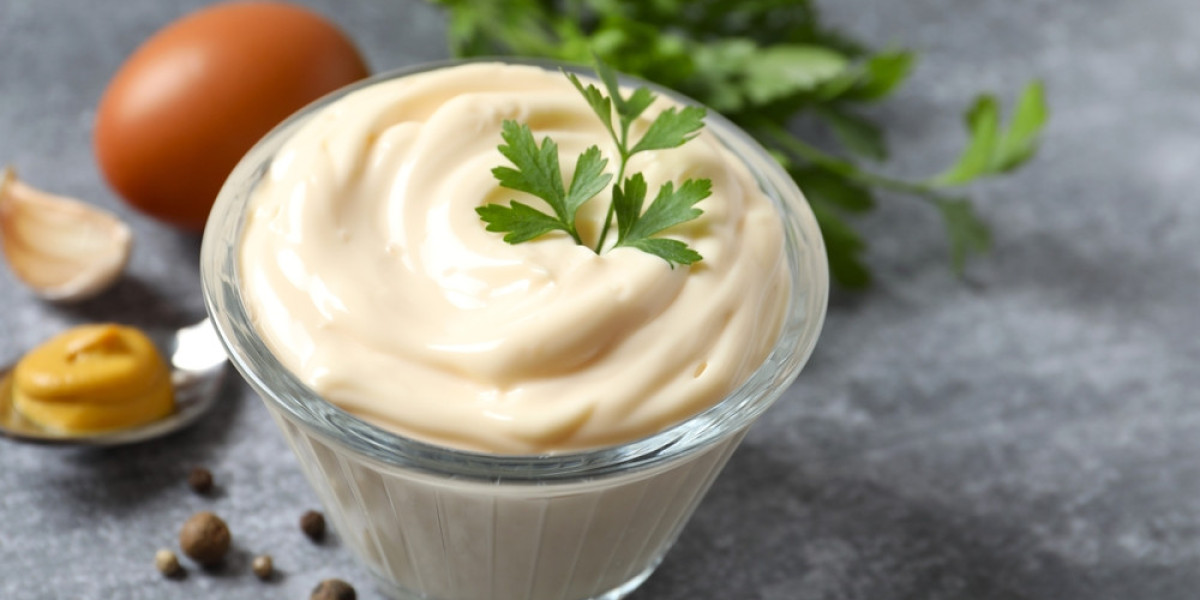1. What Makes Vegan Mayo a Healthy Alternative?
- No Cholesterol: Traditional mayonnaise contains egg yolks, which contribute cholesterol. Vegan mayo, made without eggs, is cholesterol-free, making it a heart-friendly choice.
- Lower in Saturated Fat: Many vegan mayos are made with healthy oils like olive or avocado oil, which are lower in saturated fat compared to traditional mayo, helping to support cardiovascular health.
- Plant-Based Nutrients: Ingredients like aquafaba (chickpea water), soy milk, or cashews add vitamins, minerals, and plant-based protein, giving vegan mayo a nutritional edge.
- Allergy-Friendly and Dairy-Free: Vegan mayo is egg-free and dairy-free, making it suitable for those with allergies or lactose intolerance.
2. Key Ingredients in Vegan Mayonnaise
- Aquafaba: The liquid from canned chickpeas is often used as an egg replacer in vegan mayo, creating a smooth, stable emulsion that’s similar to traditional mayonnaise.
- Plant-Based Milks (Soy, Almond, or Oat Milk): Non-dairy milks add creaminess and help emulsify the mayo.
- Oil: Neutral oils like canola, sunflower, or avocado oil are commonly used, though olive oil can also be used for added flavor.
- Acidic Ingredients: Vinegar or lemon juice adds tanginess and acts as a preservative, enhancing the mayo’s flavor and shelf life.
- Seasonings: Salt, mustard, and sometimes a touch of sweetener (like agave or maple syrup) add depth and balance the flavors.
3. Simple Homemade Vegan Mayo Recipe
- Ingredients:
- 1/2 cup unsweetened soy milk or aquafaba
- 1 cup neutral oil (such as canola or sunflower oil)
- 1–2 tablespoons lemon juice or apple cider vinegar
- 1 teaspoon Dijon mustard
- Salt to taste
- Optional: a pinch of garlic powder or black pepper for extra flavor
- Instructions:
- In a blender or food processor, combine the soy milk (or aquafaba) with lemon juice, mustard, and salt.
- Start blending, then slowly drizzle in the oil while blending continuously to create a thick, creamy emulsion.
- Adjust salt and lemon juice to taste. Transfer to a container and refrigerate for up to one week.
4. How to Use Vegan Mayonnaise in Everyday Dishes
Sandwiches and Wraps
- Spread for Sandwiches: Use vegan mayo as a creamy spread for sandwiches, wraps, or burgers.
- Tuna or Chickpea Salad: Make a delicious, plant-based tuna or chickpea salad by mixing vegan mayo with mashed chickpeas, diced celery, and seasonings.
- Avocado Toast Topping: Spread a thin layer of vegan mayo on toast before adding avocado for extra creaminess and flavor.
Salads and Dressings
- Potato or Pasta Salad: Use vegan mayo as a base for classic potato or pasta salads, adding herbs, mustard, and veggies for a flavorful twist.
- Salad Dressing: Thin out vegan mayo with a bit of water or lemon juice, and use it as a creamy dressing for green salads or slaws.
- Coleslaw: Mix vegan mayo with shredded cabbage, carrots, and a touch of apple cider vinegar for a fresh, crunchy coleslaw.
Dips and Sauces
- Garlic Aioli: Blend vegan mayo with garlic and lemon juice to create a vegan aioli for dipping fries, roasted veggies, or crudités.
- Spicy Chipotle Dip: Add a dash of chipotle powder or hot sauce to vegan mayo for a smoky, spicy dip that’s perfect for sweet potato fries or tacos.
- Ranch Dip: Mix vegan mayo with dried dill, parsley, garlic powder, and a bit of vinegar to make a vegan ranch dip for veggies or salads.
Baking and Cooking
- Egg Substitute in Baking: Vegan mayo can be used as an egg replacer in baking for cakes, muffins, and cookies, adding moisture and richness.
- Breading for Roasted Veggies or Tofu: Use vegan mayo as a base for breading tofu or veggies before baking for a crispy coating that’s full of flavor.
5. Customizing Your Vegan Mayo
- Herbed Mayo: Add fresh or dried herbs like basil, dill, or parsley to create a herbed mayo that’s perfect for summer salads and sandwiches.
- Lemon Garlic Mayo: Mix in extra lemon juice and minced garlic for a tangy, garlicky mayo that works well as a sauce for roasted veggies or seafood alternatives.
- Spicy Mayo: Stir in sriracha, chili powder, or cayenne pepper to create a spicy version that’s ideal for sushi, wraps, or veggie bowls.
- Avocado Mayo: Blend vegan mayo with ripe avocado for added creaminess and a nutritional boost, perfect for sandwiches or as a dip.
6. Popular Vegan Mayonnaise Brands
- Just Mayo: Made from canola oil and pea protein, Just Mayo is known for its creamy texture and classic taste.
- Vegenaise: One of the most popular vegan mayo brands, Vegenaise offers a range of flavors like Original, Soy-Free, and Grapeseed Oil.
- Hellmann’s Vegan Mayo: Known for its traditional mayo, Hellmann’s also offers a vegan version with a similar taste and texture.
- Sir Kensington’s Vegan Mayo: Made with aquafaba and sunflower oil, Sir Kensington’s Vegan Mayo has a rich texture and high-quality ingredients.
7. Conclusion: Embrace the Healthy Creaminess of Vegan Mayonnaise
Vegan mayonnaise is a delicious and healthy alternative to traditional mayo, offering the same creamy texture and rich flavor while fitting into plant-based and health-conscious diets. Whether you use it in sandwiches, salads, dips, or even baked goods, vegan mayo can enhance a variety of dishes with its smooth consistency and versatile flavor. Making it at home is easy and allows you to customize it to your taste, while store-bought options make it convenient for anyone looking to add a plant-based condiment to their pantry.







